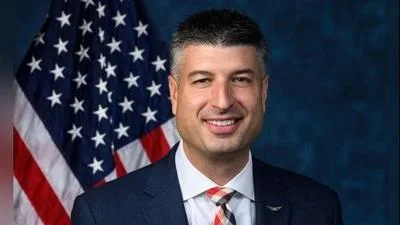Kevin M. Guskiewicz President at Michigan State University | Official website
Kevin M. Guskiewicz President at Michigan State University | Official website
Dr. S. Alexandra Burt, a distinguished professor at the College of Social Science and Department of Psychology, focuses her research on understanding how disadvantaged neighborhoods impact youth mental health. She is particularly interested in how neighborhood conditions affect behavioral and brain development, as well as why some young people thrive despite high levels of disadvantage. In collaboration with Dr. Kelly Klump, she co-directs the MSU Twin Registry.
In discussing the effects of parenting and exposure to violence on adolescents' brains, Dr. Burt explains that neighborhoods are complex entities with numerous elements such as safety, cleanliness, infrastructure, and more. Her team is currently examining community violence and parenting as key factors within these contexts. "Exposure to community violence... negatively affects behavioral and brain development," she says. However, their research found that "exposure to protective parenting buffered the effect" of such violence.
Dr. Burt's research also delves into how under-resourced neighborhoods influence children's mental and physical health through what they term “biological embedding.” This involves studying how early life experiences modify biology with long-term health consequences. Collaborating with Drs. Luke Hyde from the University of Michigan and Shaunna Clark from Texas A&M University, they are investigating how neighborhood conditions might alter brain development through structural imaging studies.
The use of twin studies is crucial for this research because identical twins share DNA but not methylation profiles—environmental effects can be observed without genetic bias. This approach allows stronger causal inferences about environmental impacts on behavior and mental health.
Looking ahead, Dr. Burt plans to work with geographer Dr. Amber Pearson to analyze various neighborhood conditions like noise pollution or economic decline that may affect child development positively or negatively.
For city leaders seeking advice based on her findings so far, Dr. Burt emphasizes the benefits of green spaces: "There is already good data on the physical and mental health benefits... The auditory environment is also key." She suggests focusing on park restoration to potentially yield tangible benefits for residents across generations.





 Alerts Sign-up
Alerts Sign-up